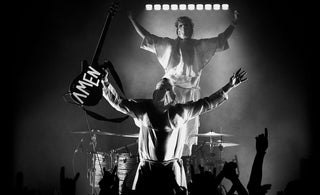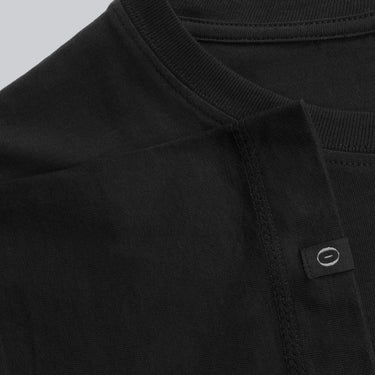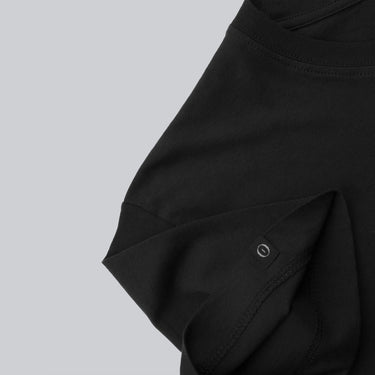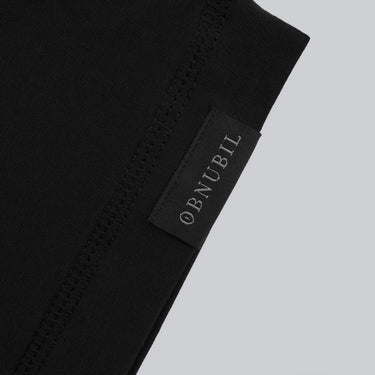
Hailing from Salamanca, Spain, this instrumental trio has built a reputation in the underground scene for their intense, atmospheric compositions that blur the line between post-rock, doom, and ritualistic soundscapes. The band consists of Skybite, Reverb Myles, Reaper Model and Joe Weasel; each contributing to their heavy, deliberate, and emotionally charged sound that feels both sacred and brutal. Coming into Sala But past Friday, September 26th, my expectations were high—and I can honestly say they were not only met, but far exceeded. From the first darkened moments to the final crushing crescendos, the night felt like a ritual, an immersive experience where sound, space, and audience merged into something unforgettable.
From the moment the lights dimmed and the venue fell into shadow, it was clear this wouldn’t be a regular concert but a sonic ritual. El Altar del Holocausto thrive on the tension between the sacred and the brutal: their instrumental offering is solemn, introspective, and cathartic.
Sala But was not sold out, but still very well attended, and the atmosphere buzzed with expectation. This was one of the band’s last “homilies” for the time being, and that sense of farewell lingered in the air.
For one reason or another, I had never managed to see this band live until now. I came with a lot of anticipation and expectations—and they were not only met, but far surpassed. I truly enjoyed their performance.
Their atmospheric moments—hallmarks of post-rock with doom undertones—were among the strongest of the night: layers of guitars building in slow-burning crescendos, explosive peaks, and dramatic silences that gave the music room to breathe. Dim lighting, and smoke, enhancing the ritualistic mood without overshadowing the music. And that’s where the band excelled—every riff, every shift in dynamics was aimed not at technical showmanship but at emotional impact.
The audience mirrored that with unusual restraint: long stretches of attentive silence, followed by near-reverent applause at the end of each piece. Unlike a conventional concert where cheers break between songs, here the crowd seemed to understand that the music’s cumulative effect was best served by collective stillness.
One of the most unforgettable moments came when one of the members actually came down into the audience, forming a wall of death and jumping with the crowd. The energy was explosive, chaotic, and yet strangely communal—the kind of moment that turns a live show into a memory that sticks.
Another of the evening’s highlights also came when the sound reached its densest point—guitars, bass, and drums merging into a crushing yet hypnotic wall of sound. It proved how masterfully the band crafts crescendos that feel not forced, but inevitable.
The set length was well judged—long enough to immerse, short enough to avoid fatigue. It was a collective act of surrender, a shared listening ritual where the audience were not mere spectators but participants in a sonic liturgy.
For longtime followers, the performance reaffirmed El Altar del Holocausto’s status as a singular force in Spain’s underground instrumental scene. For newcomers like myself, it was an unforgettable introduction—an experience that went beyond expectations!
























